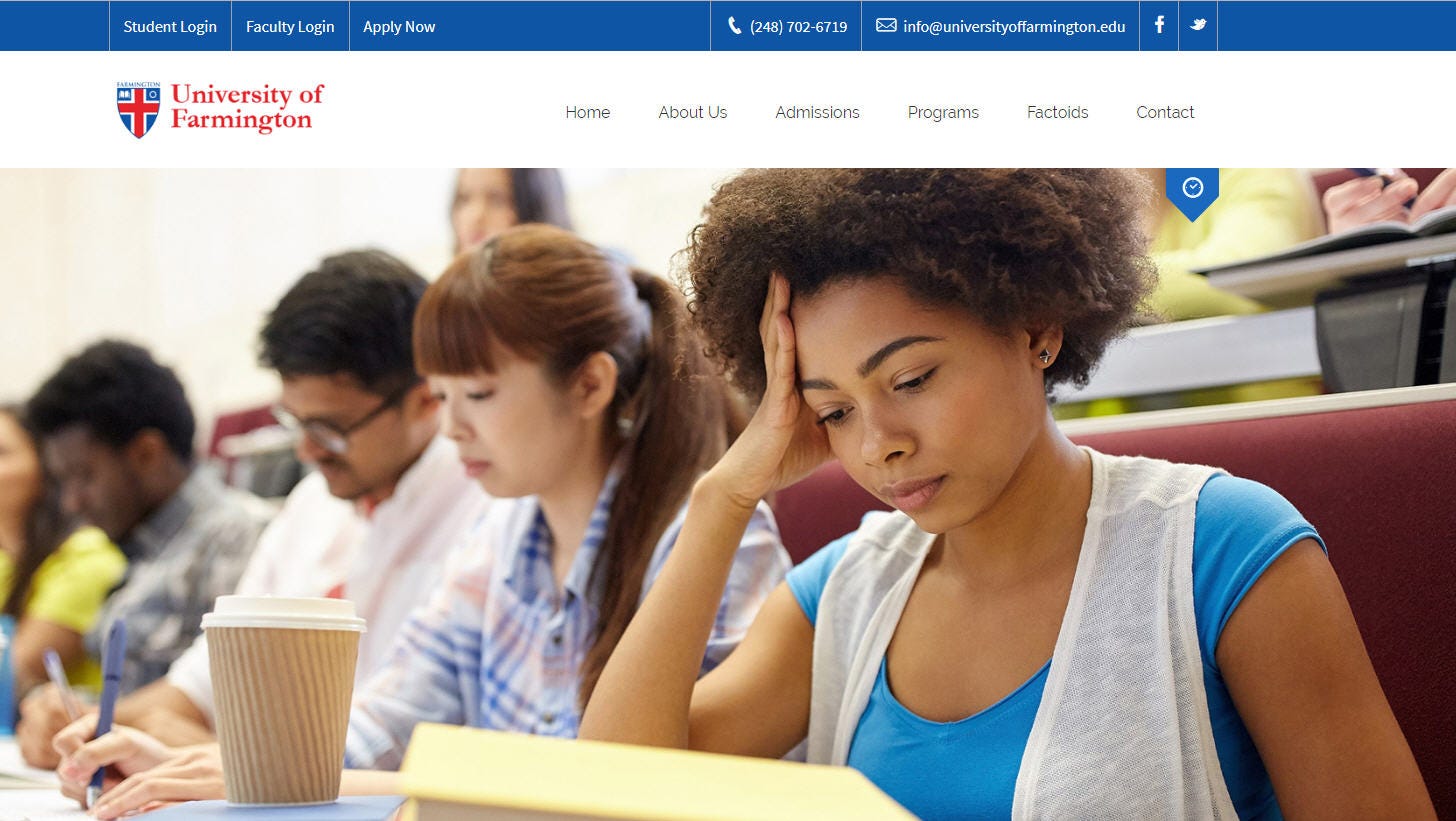How the feds pulled off University of Farmington sting
 Robert Snell
Robert Snell
Detroit — Federal agents who created a phony university to bust immigration fraud had help from straw men, a state agency, a national college accreditation group and a dead-end post office box, public records show.
The tapestry of tricks added a sheen of legitimacy to the University of Farmington, a fake university used by Homeland Security agents to arrest eight recruiters who are accused of visa fraud conspiracy and harboring aliens for profit. The recruiters helped at least 600 foreign nationals illegally remain and work in the United States by recruiting them to enroll as students at the fake university, according to federal prosecutors.
Public records help show how federal agents pulled off a novel investigation by following the playbook established two years ago when Homeland Security invented the fake University of Northern New Jersey and charged 21 people with student and work visa fraud.
“This is all standard for a sting operation,” said Peter Henning, a Wayne State University law professor and former federal prosecutor.
Details about the University of Farmington investigation's roots emerged Thursday as six recruiters made initial appearances in federal court in downtown Detroit.
Those charged include:
• Bharath Kakireddy, 29, of Lake Mary, Florida.
• Aswanth Nune, 26, of Atlanta.
• Suresh Reddy Kandala, 31, of Culpeper, Virginia.
• Phanideep Karnati, 35, of Louisville, Kentucky.
• Prem Kumar Rampeesa, 26, of Charlotte, North Carolina.
• Santosh Reddy Sama, 28, of Fremont, California.
• Avinash Thakkallapally, 28, of Harrisburg, Pennsylvania.
• Naveen Prathipati, 29, of Dallas.
Kakireddy and Kandala were arrested in their home states and are expected to soon be brought to Detroit.
The others shuffled single-file into court Thursday, their pace slowed by ankle chains and handcuffs.
"Come on, let's go!," a deputy U.S. Marshal said. "Pay attention."
U.S. Magistrate Judge David Grand ordered the accused recruiters held without bond. On Monday, federal prosecutors will argue the men should be jailed pending trial on charges that could send them to prison for up to five years.
Federal officials revealed 130 University of Farmington students were arrested on immigration violations during a nationwide sweep Wednesday. The students, who federal agents say knew the university's program was illegal, face deportation.

Meanwhile, The News has learned that the University of Farmington president is a fictional character invented by federal agents who does not exist beyond a bare-bones LinkedIn profile. President Dr. Ali Milani, who is listed on the university's state business filings, owns no property, has no relatives and has never voted, according to a public records database.
Milani was listed in state business filings as one of five officers and directors at the university. Like Milani, Treasurer Omar Parsi does not appear in a national public records database.
Federal agents in the New Jersey investigation invented a fictional president, Dr. Steven Brunetti.
There is some concern unwitting students were caught in the immigration crackdown Wednesday.
“In the New Jersey case, there were some students who realized too late what was going on and who started the process certainly believing it was a legitimate university,” said Rachael Merola, senior researcher with the Observatory on Borderless Higher Education in New York.
“This could further squeeze all of the students who want to come to the U.S. and study in legitimate ways, who will have to consider other options," Merola added.
The University of Farmington first appeared in state business filings in November 2015 as an assumed name of another company, International Schools of Michigan.
At the time, the company’s address was a UPS store in Novi at the intersection of Novi and Twelve Mile.

In November 2015, the state Department of Licensing and Regulatory Affairs approved a request by the university to conduct business in Michigan. The request was granted after the state confirmed the University of Farmington had demonstrated plans to provide housing space, administration facilities, labs, a library and other teaching facilities.
The university, however, has none of those amenities and operated in a single office suite in the basement of a commercial complex in Farmington Hills.
The letter from Michael Beamish, a manager with the state's Corporations, Securities & Commercial Licensing Bureau, was mailed to Milani's post office box in Novi.
David Harns, a Michigan Department of Licensing and Regulatory Affairs spokesman, declined to comment Thursday about whether licensing officials had cooperated in the undercover sting. He referred comment to Homeland Security officials.

The University of Farmington website claimed it was accredited by the Accrediting Commission of Career Schools and Colleges in Virginia. The national group's president told The New York Times in 2016 he certified the University of Northern New Jersey to cooperate with the federal investigation.
The commission accredited the University of Farmington after Homeland Security agents outlined the scope of the investigation, Executive Director Dr. Michale McComis told The News on Thursday.

“We weren’t part of the operation any more than just to provide that foundational piece of legitimacy and having them listed as an accredited institution on our website," McComis said.
Federal agents deployed several other tactics to make the University of Farmington appear to be a legitimate school.
The main photo of University of Farmington students on the school's website is nearly identical to a commercially available picture on the stock photograph website Shutterstock.
The University of Farmington has its own Facebook page, too, with a calendar of events, including one scheduled for next week with nonexistent university officials.
rsnell@detroitnews.com
(313) 222-2486
Twitter: @robertsnellnews